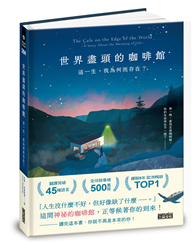From its modern origins in seventeenth-century France, encyclopedic compilations met the need for the dissemination of information in a more flexible format, one that eschewed the limits of previous centuries of erudition. The rise of vernacular languages dovetailed with the demand for information in every sector, sparking competition among nations to establish the encyclopedic "paper empires" that became symbols of power and potential. The contributors to this edited collection evaluate the long-overlooked phenomenon of knowledge creation and transfer that occurred in hundreds of translated encyclopedic compilations over the long eighteenth century.
Analysing multiple instances of translated compilations, Translation and Transfer of Knowledge in Encyclopedic Compilations, 1680-1830 expands into the vast realm of the multilingual, encyclopedic compilation, the most tangible proof of the global enlightenment. Through the presentation of an extensive corpus of translated compilations, this volume argues that the true site of knowledge transfer resided in the transnational movement of ideas exemplified by these compendia. The encyclopedia came to represent the aspiring nation as a viable economic and political player on the world stage; the capability to tell knowledge through culture became the hallmark of a nation’s cultural capital, symbolic of its might and mapping the how, why, and where of the global eighteenth century.










